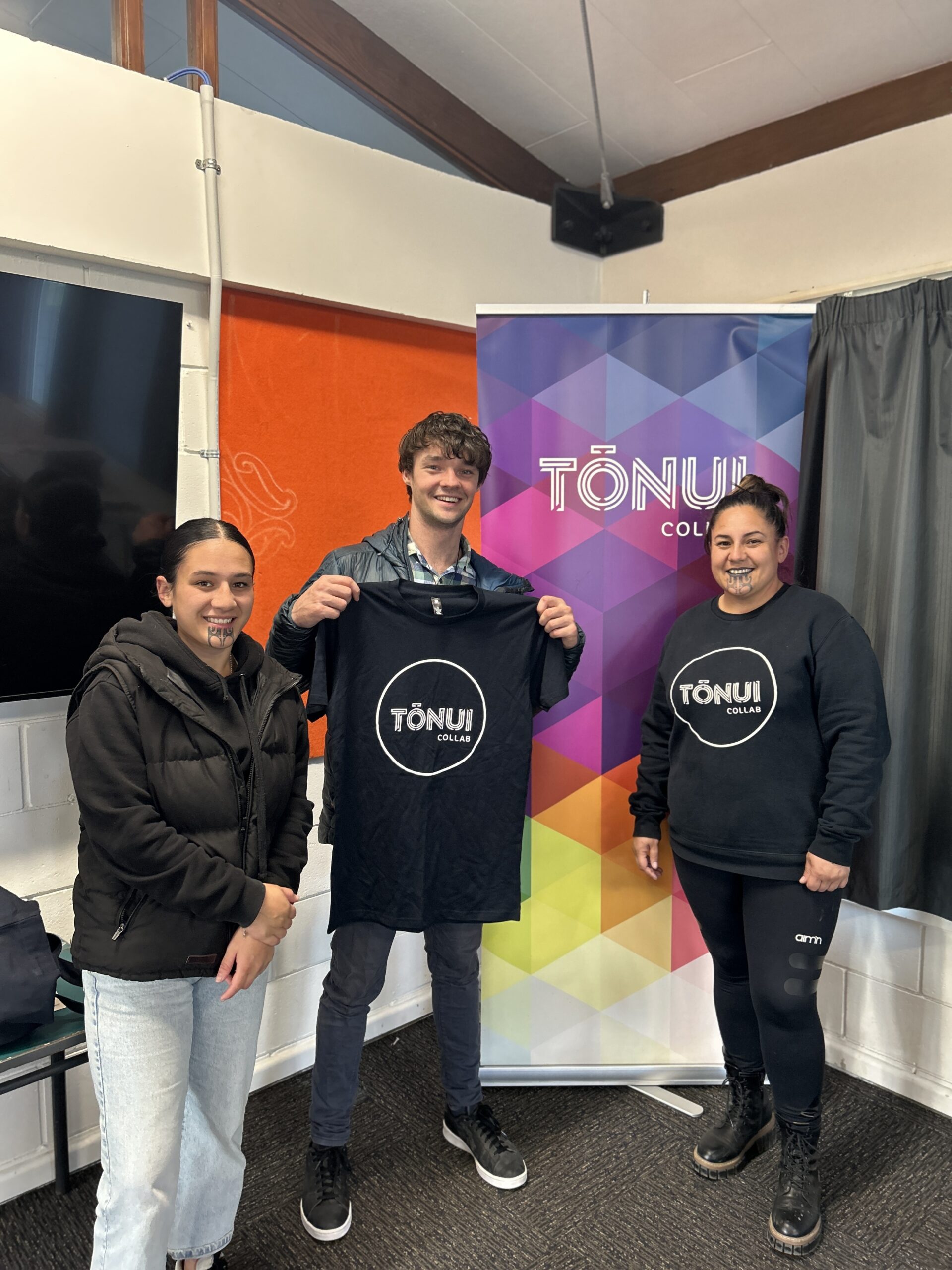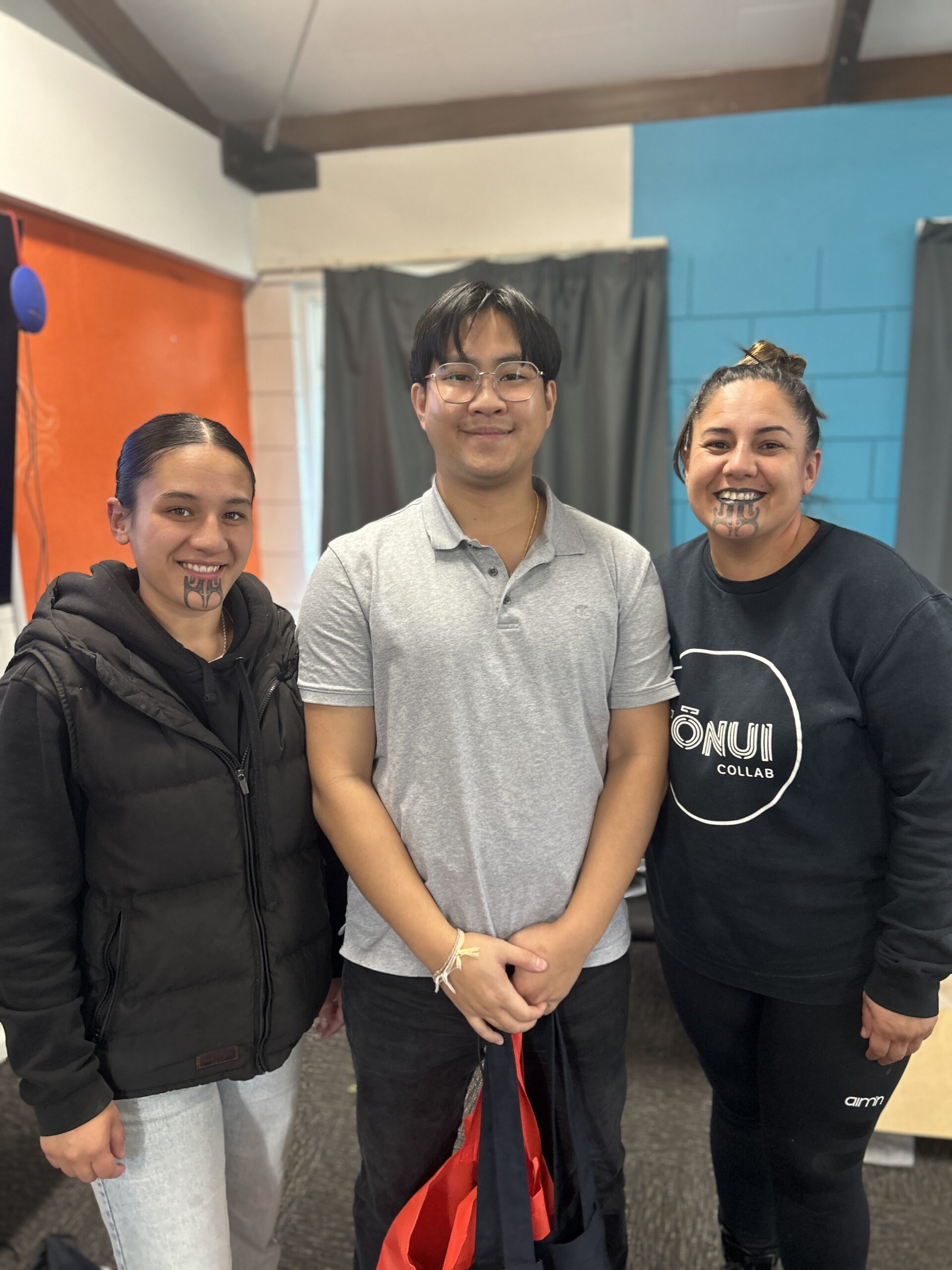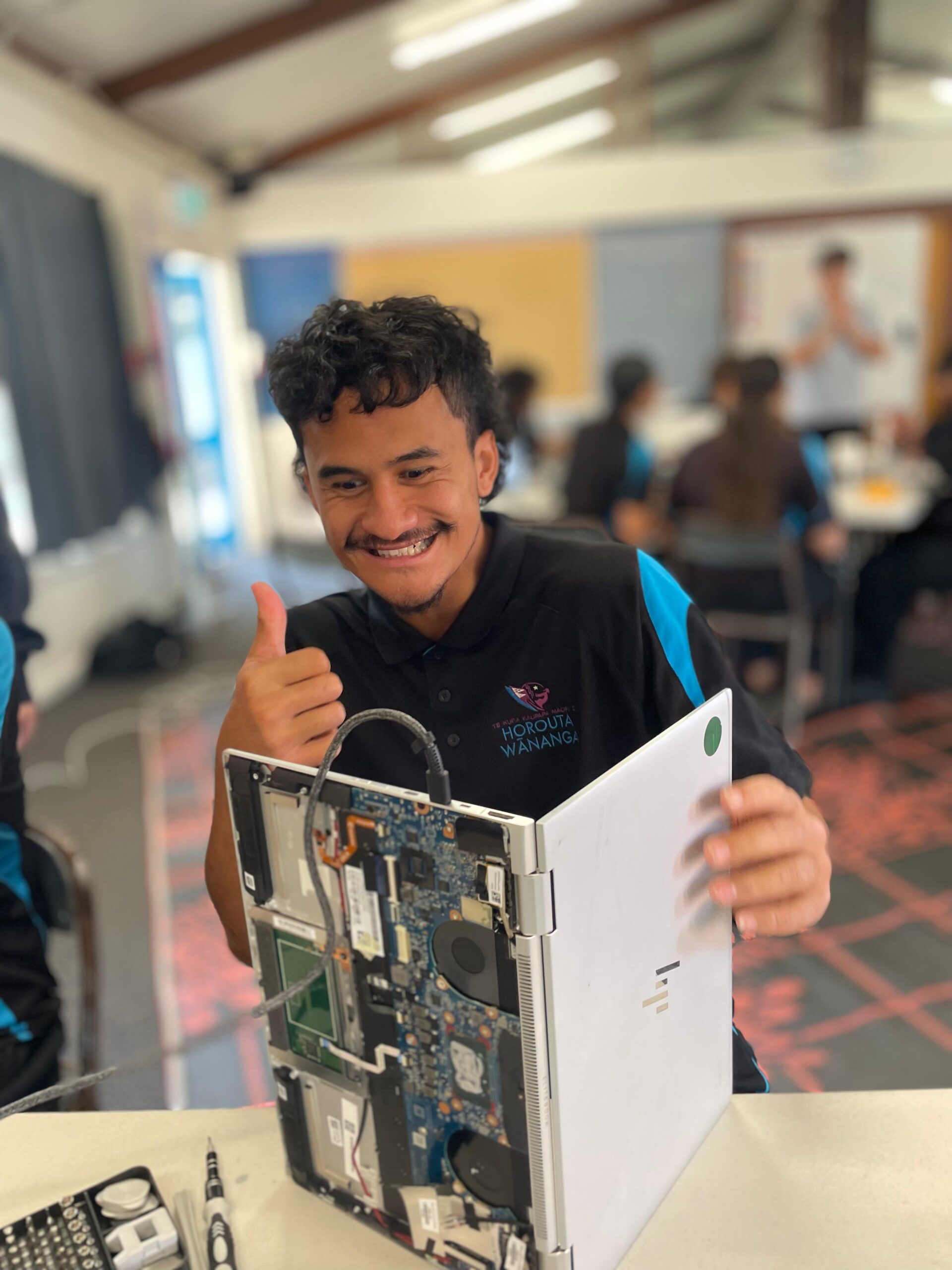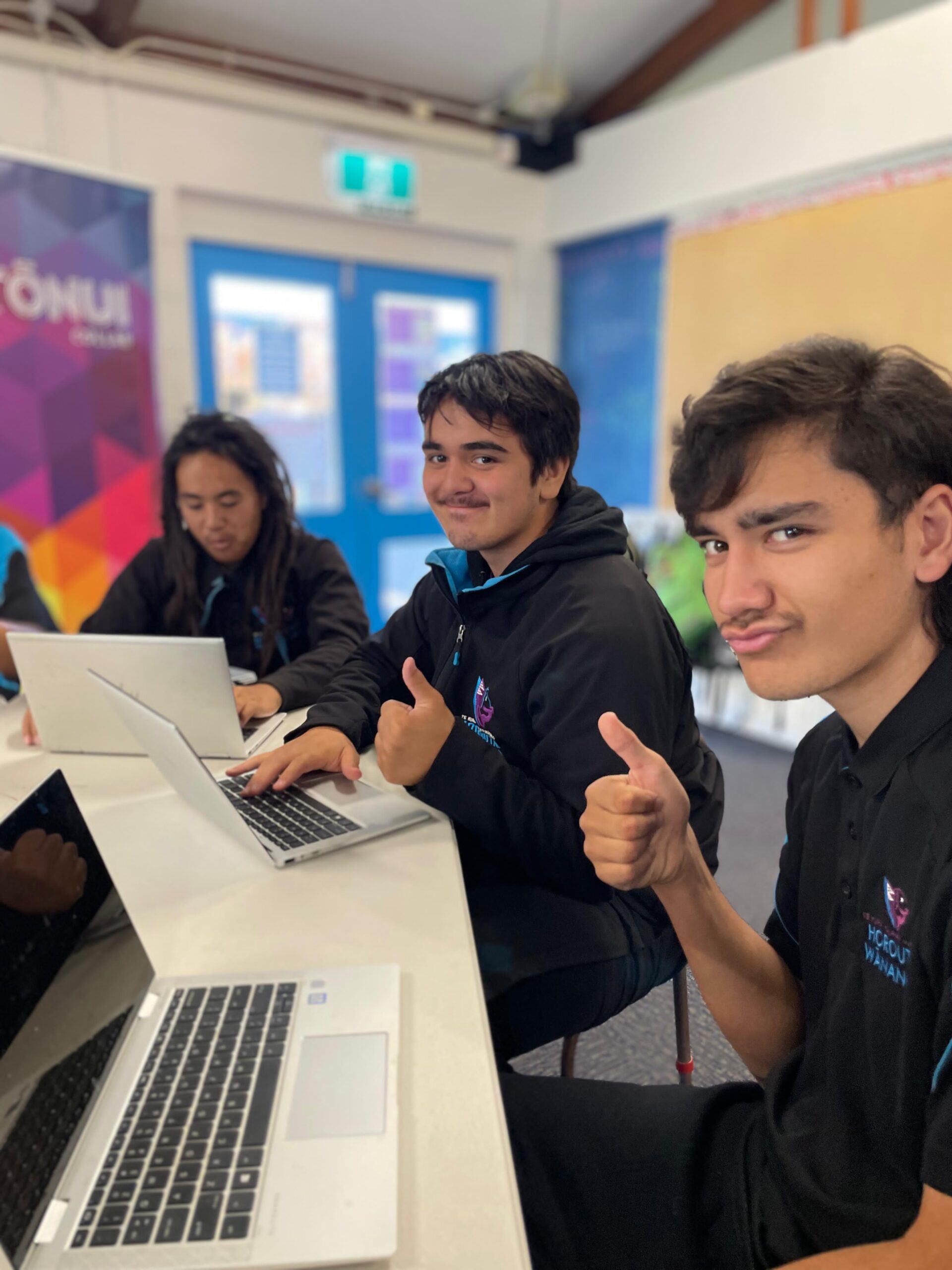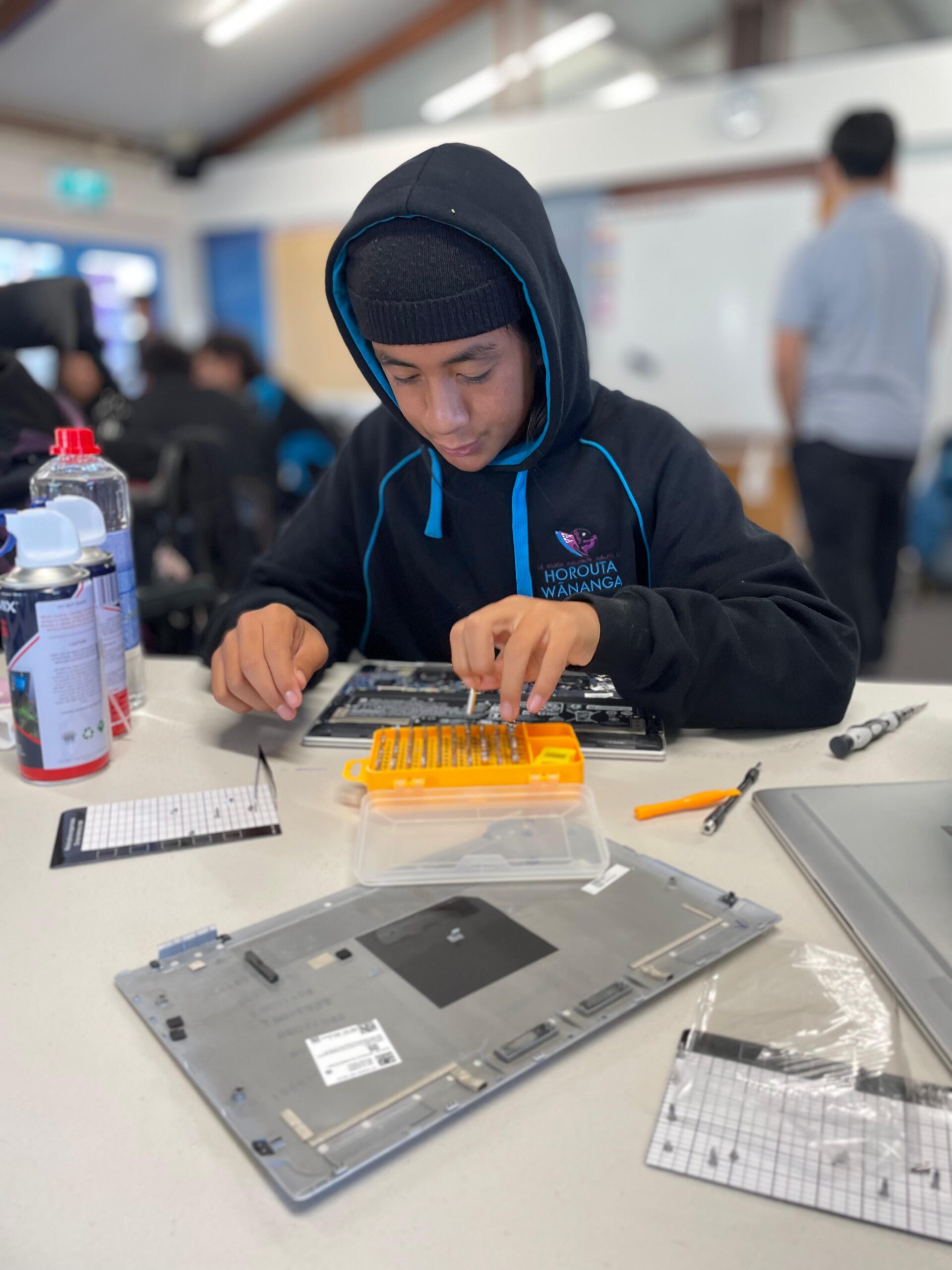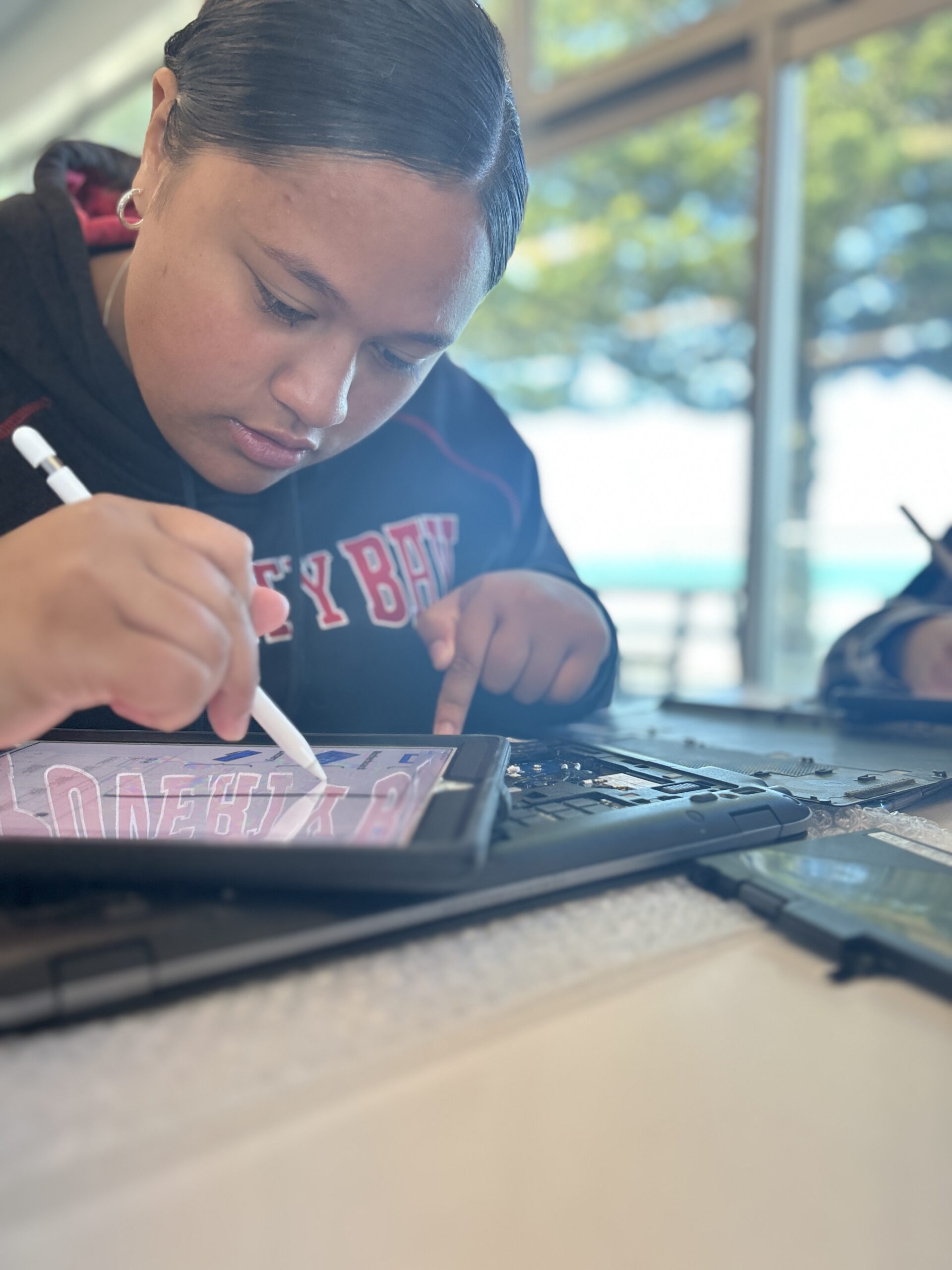
Tōnui Collab
Pou Herenga Tangata Award organisation recipient 2023
Digital Inequity is prevalent in Te Tairāwhiti and while the Ministry of Education is working with schools and kura to address the issue, in our engagement with whānau across Te Tairāwhiti it is clear that many whānau do not have adequate digital devices is their homes to support tamariki and rangatahi to do school work or for whānau to access support or engage in the range of processes encouraged to be completed via digital channels (whether this is applying for a drivers license, applying for a job, drafting a CV, click and collect shopping, bank payments etc).
Recycle a Device (RAD) is an initiative established by some young people during the Covid lockdowns and has since been supported to grow across the country as part of the DECA (Digital Equity Coalition of Aotearoa) attempts to address inequity.
The kaupapa is that young people, are supported to refurbish laptops (donated by organisations across the country) and those refurbished laptops are donated to anyone in the community who needs one. Addressing the digital inequity starts in our own homes and then in our hapori.
We would like to use this funding to help some rangatahi start up their own RAD club, refurbishing the laptops and rehoming them where they have identified a need. We have already facilitated a couple of training days to help develop skill sets, we will continue to support our rangatahi where they need support however we would like them to be empowered to lead this kaupapa. We have a group of rangatahi from a few local kura Māori keen to come together to work on this kaupapa, the funding will be used to stand-up this kapa, resourcing the tools and hardware needed, covering the cost of kai for their monthly gatherings, screen printing tihate for their kapa.
Kaupapa update from Tōnui Collab
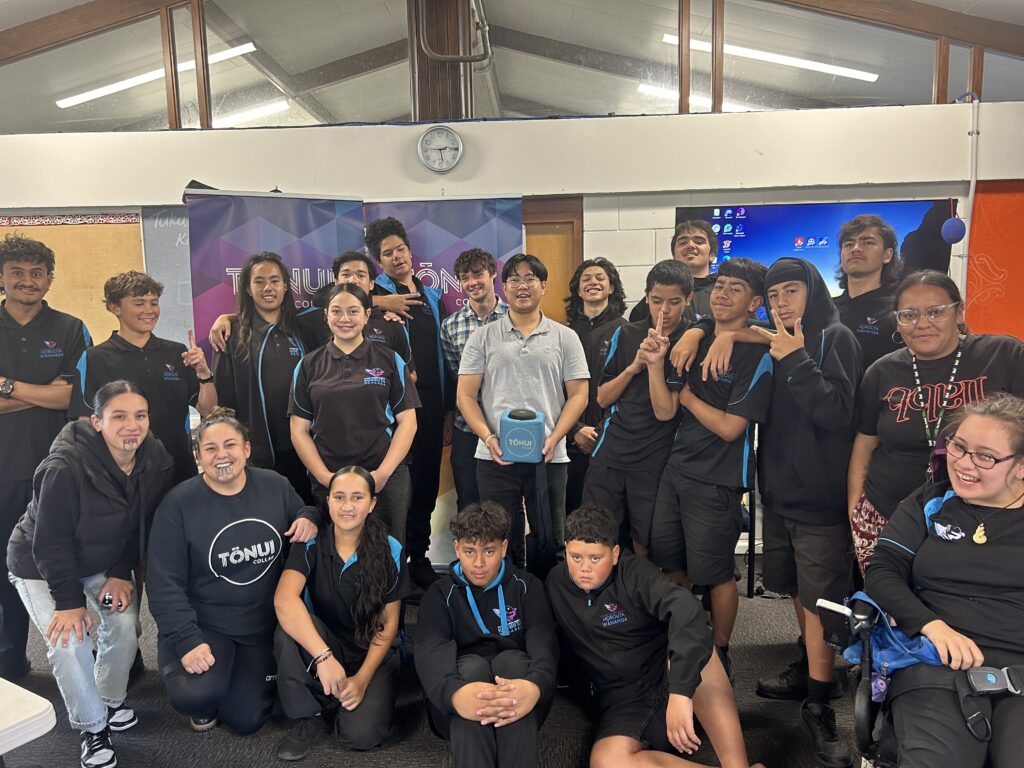
What were the major outcomes of this kaupapa?
Since receiving the funding, Tōnui Collab has established a club within Te Kura Kaupapa Māori o Horouta Wānanga. Kaiako, Brandon Terekia is the lead for the RAD kaupapa at Te Kura Kaupapa Māori o Horouta Wānanga and 20 rangatahi have signed up to the Club.
We have held three RAD sessions with the rangatahi to introduce the kaupapa, develop an understanding of digital equity and the impact of digital inequity.
We have held a training day for 16 of the rangatahi. Two trainers from Remojo Tech came to Turanganui-a-Kiwa from Dunedin to facilitate the training day and teach the rangatahi the neccesary skills to be able to refurbish laptops.
We have established an equipment cupboard for tools and replacement parts onsite at Te Kura Kaupapa Māori o Horouta Wānanga.
What were some of the challenges your kaupapa faced during its implementation?
One of the challenges of many collaborators on a kaupapa can be availability and scheduling. The rangatahi o Te Kura Kaupapa Māori o Horouta Wānanga are very busy with various commitments. We have had to cancel or postpone three sessions to date. We have addressed this challenge by forecasting sessions for the rest of the year and distributing this timetable to tumuaki, kaiako, and rangatahi; currently no future dates are in conflict with other commitments.
How did this kaupapa benefit from the Pou Herenga Tangata Award?
The support from Tapuwae Roa has given us the confidence and runway to establish the club in partnership with Te Kura Kaupapa Māori o Horouta Wānanga.
The funding from Tapuwae Roa has enabled us to:
(a) purchase storage equipment for computer parts and tools
(b) acquire tools and provide training for the rangatahi
(c) cater all sessions including the training day
(d) provide all participating rangatahi and kaiako with team shirts
What are your future plans for this kaupapa?
We are continuing to collaborate with Te Kura Kaupapa Māori o Horouta Wananga for the rest of 2024. We hope that over the next 6 months, kaiako me rangatahi o Te Kura Kaupapa Māori o Horouta Wananga will develop the confidence to continue this kaupapa by themselves, that we will have supported them to establish the processes so that we are not needed for routine sessions however we will continue to check in on them.
We hope that when the kaiako and rangatahi from Te Kura Kaupapa Māori o Horouta Wananga no longer need our support, we can seed the RAD kaupapa at another Kura Kaupapa Māori (or collection of Kura Kaupapa Māori) further up the coast of Te Tairāwhiti.
We have been successful in accessing additional funding support from the Gisborne District Council to support this RAD kaupapa.

